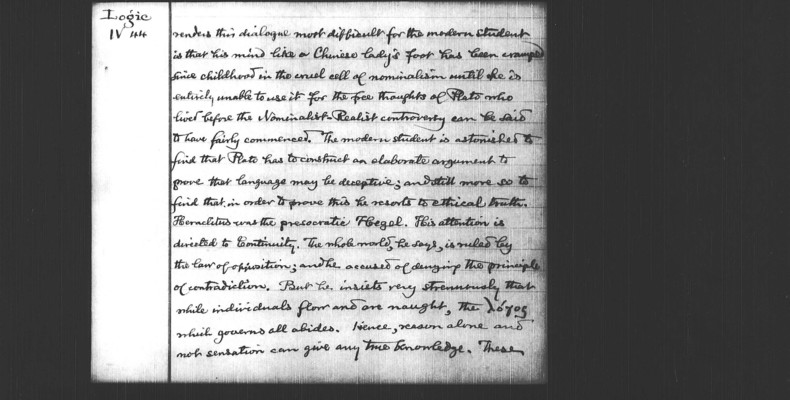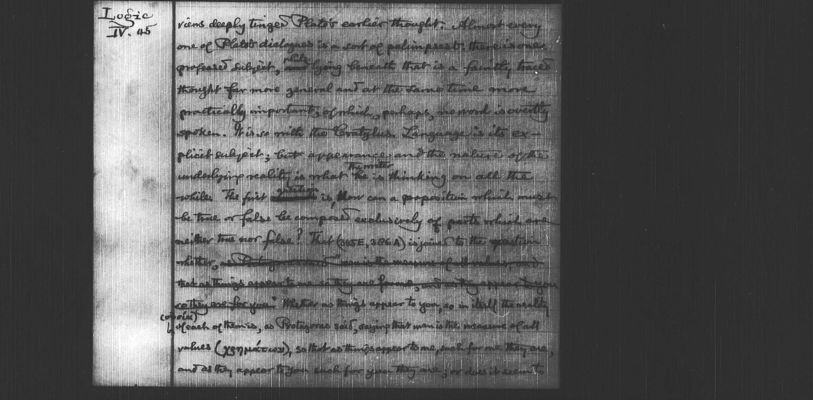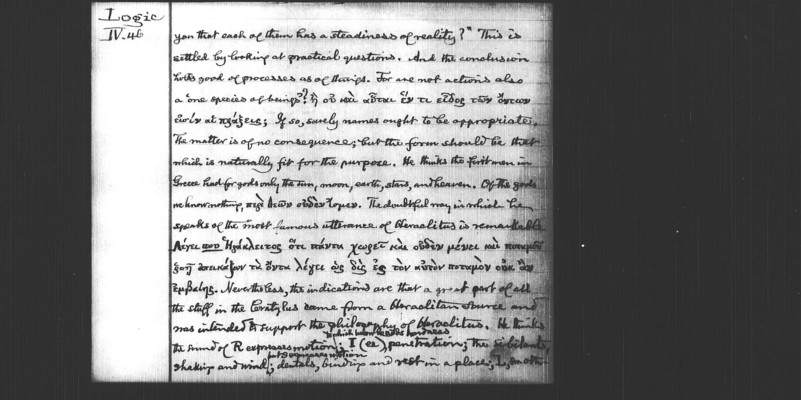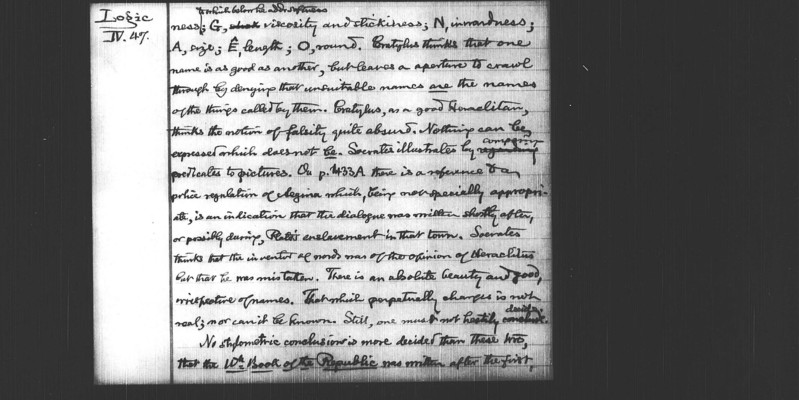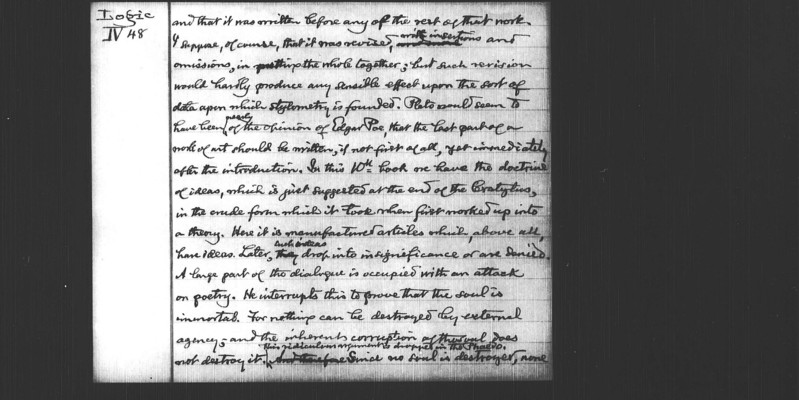Pages
41
Logic IV 44 renders this dialogue most difficult for the modern student is that his mind like a Chinese lady's foot has been cramped since childhood in the cruel cell of nominalism until he is entirely unable to use it for the free thoughts of Plaot who lived before the Nominalist Realist controversy can be said to have fairly commenced. The modern student is astonished to find that Plato has to construct an elaborate argument to prove that language may be deceptive and still more so that fin that in order to prove this he resorts to ethical truth. Heraclitus was the presocratic Hegel. His attention is directed to Continuity. The whole world he says in ruled by the law of opposition and he accused of denying the principle of contradiction. But he insists very strenuously that while individuals [flow?] and are naught the [foreign text] which governs all abides. Hence reason alone and not sensation can give any true knowledge. These
42
Logic IV. 44 views deeply tinged Plato's earlier thought. Almost every one of Plato's dialogues is a sort of palimpsest: there is one professed subject, while lying beneath that is a faintly traced thought far more general and at the same time more practically important of which perhaps no word is overly spoken. It is so with the Ceratylus. language is its explicit subject but appearance and the nature of the underlying reality is what the writer is thinking on all the while. The first question is how can a proposition which must be true or false be composed exclusively of parts which one neither true nor false? That 385E, 386A is joined to the question whether as things appear to you, so in itself the reality of each of ths is as Protagoras said, saying that man is the measure of all values [foreign text] so that as things appear to me such for me they are and as they appear to you such for you they are or does it seem to
43
Logic IV. 46 you that each of them has to steadiness of reality? This is settled by looking at practical questions. And the conclusion holds good of processes as of things. For are not actions also a 'one species of beings?' [foreign text]. If so surely names ought to be appropriate. The matter is of no consequence but the form should be that which is naturally fit for the purpose. He thinks the first men in Greece had for gods only the sun, moon, earth, stars, and heaven. Of the gods we know nothing [foreign text]. the doubtful way in which he speaks of the most famous utterance of Heraclitus is remarkable [foreign text]. Nevertheless the indications are that a great part of all the stuff in the Ceratylus came from a Heraclitan source and was intended to support the philosophy of Heraclitus. he thinks the sound of R expresses motion' I penetration, the [sibilants?] shaking and wind, dentals, binding and rest in a place; L smoth
44
Logic IV. 47 nexx to which below he add softness; G viscosity and stickiness; N inwardness; A size; E length; O round. Certylus thinks that one name is as good as another but leaves a aperture to crawl through by denying that unsuitable names are the names of the things called by them. Ceratylus as a good Heraclitan thinks that notion of falsity quite absurd. Nothing can be expressed which doesn't be. Socrates illustrates by comparing [poeticals?] to pictures. On p.433A there is a refernce to a [?] regulation of Aegina which being nonspecifically appropriate is an indication that the dialogue was written shortly after or possibly during Plato's enslavement in their town. Socrates thinks that the invent of words was of the opinion of Heraclitus but that he was mistaken. There is an absolute beauty and good irrespective of names. That which perpetually shapes is not real; nor can it be known. Still on e must not hastily decide. No [stylometric?] conclusion is more decided than these two that the 10th Book of the Republic was written after the first
45
Logic IV 48 and that is was written before any of the rest of that work. I suppose of course that it was revised with insestions and omissions in putting the whole together but such revision would hardly produce any sensible effect upon the sort of data upon which stylometry is founded. Plato would seem to have been nearly of the opinion of Edgar Poe that the best part of a work of art should be written if not first of all yet immediately after the introduction. In this 10th book we have the doctrine of ideas which is just suggested at the end of the [Cratylios?] in the crude form which it took when first worked up into a theory. Here it is manufactured articles which above all have ideas. later such ideas drop into insignificance or are denied. A large part of the dialogue is occupied with an attack on poetry. He interrupts this to prove that soul is immortal. For nothing can be destroyed by external agency and the inherents corruption of the sould does not destroy it. This rediculous argument is dropped in The Phaedo. Since no sould is destroyed, none
